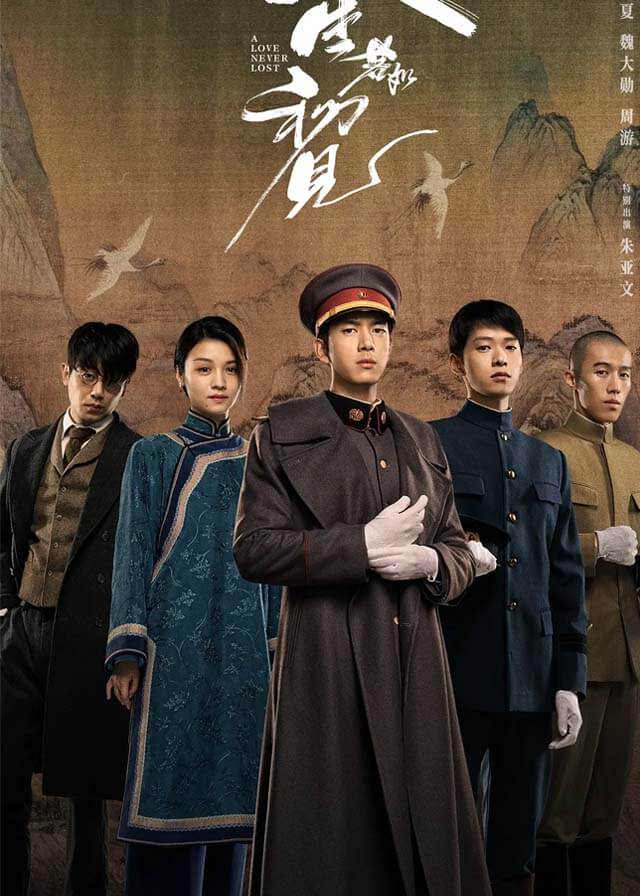A Love Never Lost Episode 39 Recap
> A Love Never Lost Recap
From the moment Liang Xiang met Yang Kaizhi, Yang Kaizhi had been living on the edge. All these years had passed, and he still hadn't changed his ideals. Liang Xiang had long anticipated this day and had tried countless times to persuade Yang Kaizhi to give up his ideals, but Yang Kaizhi never listened. Li Renjun told Liang Xiang, "Geniuses attract jealousy, and pride clashes with the world.
Be flexible—after all, I’ve already lost one brother, and I don’t want to lose you too. " On October 16th, Year 3 of the Xuantong era, the Prince Regent Zai Feng abdicated at the age of 29. Zai Feng resigned from his duties and ignored the worsening situation. Liang Xiang was furious. Lady Liang understood—once a tree has been hollowed out by rot, even the slightest breeze can topple it.
Zai Feng sensed the nation's doom approaching and took the chance to escape, avoiding the stigma of being the one who lost the country. Lady Liang advised Liang Xiang to do the same and let it go. Empress Dowager Longyu had already granted Yuan Shikai full authority to negotiate with the southern revolutionaries. Yuan Shikai reorganized his personal guard into the capital’s garrison army, which was now responsible for the city’s security.
Once the transition was completed, the imperial guard would be moved to the outskirts of Beijing. Li Renjun, upon returning, had to pack and leave again. Yuan Gongbao had appointed him Deputy Commander of the garrison army, tasking him to coordinate with Liang Xiang and stabilize the morale of the imperial guard to prevent any accidents.
Liang Xiang went to see Zai Feng and was shocked to learn that Lord Duan Fang had been killed by the rebels half a month ago in a gruesome manner, decapitated. Zai Feng was filled with guilt—if he hadn't summoned Duan Fang out of retirement, Duan wouldn't have ended up like that.
The next day, amidst a field of white snow, the handover between the imperial guard, led by Liang Xiang, and the garrison army, led by Li Renjun, was completed. Li Renjun watched Liang Xiang leave, knowing that such a fragile figure could no longer uphold the crumbling regime alone. The fall of the Qing dynasty's feudal rule was the unstoppable wheel of history.
Nobles like Liang Xiang who attempted to preserve feudal power were destined to fail, like an insect trying to stop a chariot—utterly in vain. Liang Xiang and Li Renjun finally had time to sit down and discuss the details of Yang Kaizhi’s death. It was almost the moment Li Renjun left Zhenkou that he heard the gunshot. Li Renjun believed he had a clear conscience—until the very last minute, he had tried to pull Yang Kaizhi back.
When the shot rang out, Li Renjun realized this was history at work, not anyone’s individual scheme. Everyone bore responsibility—Liang Xiang, Yang Kaizhi, and himself. Song Baoquan was in finance, but he deeply understood the revolution—it required enormous funding. From managing an entire division to supplying meals and lodging, every part was a bottomless pit. Song Baoquan was busy negotiating with the Belgian consul over a bankbook issue, and Xie Shuhong didn’t disturb him.
Song Baoquan remembered a letter from Zhenkou and gave it to Xie Shuhong. It was from Gu Maichen, bearing the devastating news that Yang Kaizhi had been killed by reactionary forces. Enclosed was the letter Xie Shuhong had written to Yang Kaizhi—he hadn’t finished reading it before he died, and it was stained with his blood. Xie Shuhong was struck by dizziness and fainted. Song Baoquan rushed over. When he saw the letter, he too was in disbelief.
Yang Yifan soon learned of Yang Kaizhi’s death as well. Worried that Shuhong would be crushed by grief, he encouraged her not to stop moving forward—to be a witness to their generation’s pursuit of a new light. As Song Baoquan arranged behind-the-scenes negotiations between the North and South, Song Chen told Xie Shuhong that Zhang Jian was the main figure in the talks, attending with the goal of ending the turmoil quickly. No one could predict the future course of history, but at least for now, China could no longer afford the cost of a protracted revolution.















